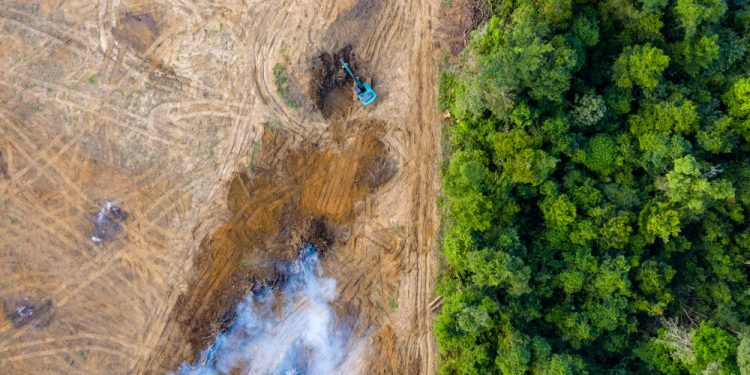MSCI will launch new screening tools early next year to help investors identify companies that are contributing to biodiversity loss and deforestation.
The tools, which will be available to institutional investors when building sustainable portfolios will use thousands of ESG and climate data points, overlaid with MSCI’s proprietary geolocation data that helps pinpoint a company’s operations.
The two main tools included:
- MSCI Biodiversity-Sensitive Areas Screening Metrics, which enable investors to identify companies that have physical assets located in areas of high biodiversity relevance, such as healthy forests, deforestation fronts, or species-rich areas.
- MSCI Deforestation Screening Metrics, which indicate companies exposed to deforestation related risks, including those that directly or indirectly (via supply chains) contribute to deforestation. This could be a result of direct operations in areas of risk, such as the tropics, or by the production or reliance on commodities considered key drivers of deforestation, such as palm oil, soy, beef, and timber.
MSCI executive director, head of ESG products Nadia Laine says: “We have spent decades developing data for global investors to measure risk and opportunities related to climate change and ESG factors.
“We have applied this experience to emerging issues around nature loss and deforestation. Global biodiversity challenges, such as the spread of invasive species, land-use change, and pollution, will have very tangible impacts on the way in which companies function in the near- and long-term future. MSCI aims to help institutional investors understand those risks on the portfolio level.”
MSCI announced the launch of these tools during the 15th Conference of the Parties (COP 15) in Montreal, which is set to provide a framework with specific goals to protect biodiversity and the world’s natural capital by 2030.
Emerging financial regulations – such as the European Union Biodiversity Strategy 2023, or recent EU legislation banning imported good connected to deforestation – are also bringing companies under more scrutiny for contributing to nature loss, presenting new financial risks for their investors.
MSCI ESG Research’s ‘ESG and Climate Trends to Watch for 2023’ report indicates that companies’ level of preparedness for these types of regulation is low, with less than 12 per cent of food product companies disclosing a deforestation policy, as of October 2022.
According to MSCI ESG Research data, 11 per cent of constituents of the MSCI All Country World Index as of Nov. 30, 2022 have the potential for direct or indirect contribution to deforestation.
Sylvain Vanston, executive director, climate investment research at MSCI ESG Research adds “The biodiversity on our planet is declining at an alarming rate largely due to human activity, from habitat destruction, pollution, water stress to climate change-related pressures.
“This decline in the ability of nature to provide ecosystem services poses a major threat to the global economy. Important steps are being made with world leaders meeting at COP15 in Montreal, and the Taskforce on Nature-related Financial Disclosures is also aiming to redefine a standard reporting framework. However, for crucial action to be taken, capital markets participants need to have access to timely and robust data to make more informed investment decisions. Understanding risks related to deforestation and certain activities in sensitive regions is an important step in this direction.”





